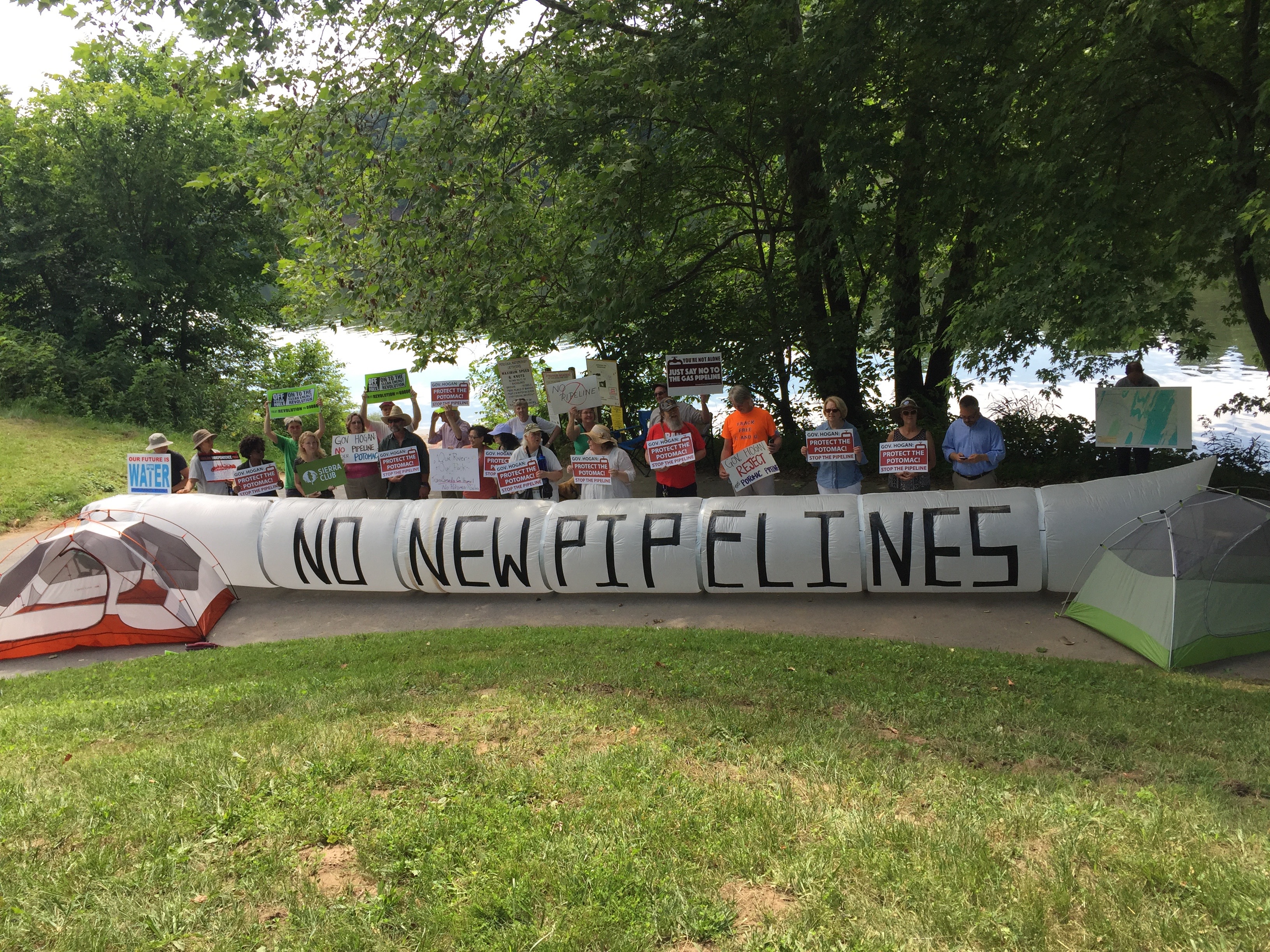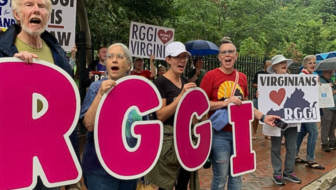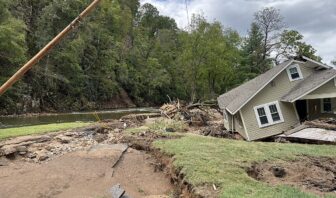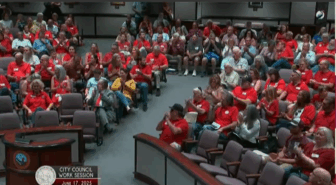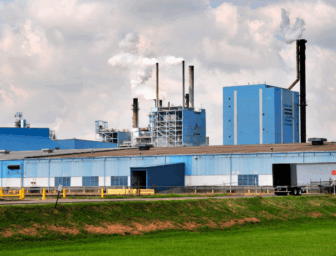Following The Lead Of Standing Rock Protesters, Groups Launch First Of Its Kind Protest Encampment To Urge Gov. Hogan To Reject TransCanada’s Fracked-Gas Pipeline
CLEAR SPRING, MD– On June 30, a coalition of area citizens, elected officials, and environmental advocates announced the launch of a protest encampment to stop TransCanada’s proposed pipeline under the Potomac River. This encampment is the first of its kind in Maryland history to protest fossil fuels. The proposed pipeline would threaten millions of residents in Maryland, Virginia and Washington, D.C. who rely on the Potomac river for drinking water. The protesters are camping out to draw attention to the issue and demand Maryland Governor Larry Hogan reject the permit required for construction of this pipeline.
The encampment, titled “Standing Rock to Hancock: Camp Out to Stop the Potomac Pipeline,” will take place throughout the summer with camp outs along the C&O canal near Hancock, Maryland. The coalition intends to draw attention to the many concerned citizens, environmental advocacy groups, and elected officials who are opposed to endangering drinking water for a pipeline that won’t benefit Maryland citizens.
TransCanada’s proposed Eastern Panhandle Expansion project would transport fracked gas from Pennsylvania to West Virginia by way of Maryland underneath the Potomac River and C&O Canal. The encampment will take place at McCoy’s Ferry, near the pipeline’s proposed route.
“Clean energy is where our nation needs to be. This isn’t a partisan issue, it’s about protecting our environment, national security, economic security and public health,” said Senator Cardin, senior member of the Senate Environment and Public Works Committee. “Investment in clean energy is booming and Congress has to act swiftly to support this effort or risk hurting the United States financially and damaging our global reputation as a clean energy innovator.”
“Fracked gas and the supporting infrastructure has no long term benefits to the State of Maryland, and this pipeline project puts an enormous amount of risk on Maryland residents,” said Brent Walls, Upper Potomac Riverkeeper. “Drilling under the Potomac River –the drinking water source for millions of people — for a fracked gas pipeline in sensitive karst geology that threatens water quality is not a plan we support. And strong arm tactics, like threatening eminent domain, don’t play well out here. But they’re trying it anyway.”
The pipeline would cross sensitive karst geology, which is characterized by underground drainage systems with sinkholes and caves and is easily susceptible to transmission of pollutants through connected underground aquifers. The pipeline could degrade pristine streams and further threaten public and private water supplies. Using hydraulic directional drilling under streams in karst geology would create pathways for water to drain down the bore holes and dissolve the limestone around the piping. This activity can create sinkholes that could impact the integrity of the pipeline, causing subterranean ruptures and even explosions, further threatening the Potomac River.
“Governor Hogan took a huge step forward on climate by signing Maryland’s statewide fracking ban in April,” said Mike Tidwell, Executive Director of the Chesapeake Climate Action Network. “But fracking infrastructure like the Potomac Pipeline will only result in more fracking elsewhere. Gov. Hogan needs to complete the fracking ban by rejecting this pipeline.”
“The health of the Potomac River basin is essential to the health of millions of Marylanders,” said Maryland Delegate Jheanelle Wilkins (D-20). “TransCanada, a company known for its blatant disregard for environmental protection, is proposing a pipeline that would put our drinking water at risk for a pipeline that is not needed. For the health of our water and our communities, I urge Governor Hogan to reject the pipeline.”
“This pipeline is literally an investment in fossil-fuel infrastructure that will lock our region into a tremendous amount of climate pollution for decades to come,” said Josh Tulkin, Director of the Maryland Chapter of the Sierra Club. “At a time when Maryland and other states need to be investing in wind and solar, this pipeline will open the floodgates for years and years of continued pollution. After banning fracking and setting an aggressive climate change goal we cannot turn around and allow a fracked gas pipeline that threatens our communities and water resources through our state. We hope Governor Hogan will make the right decision and reject this pipeline.”
“For the same reason we called for a ban on fracking, we’re calling on Governor Hogan to stop the Potomac Pipeline,” said Rianna Eckel, Maryland Organizer, Food & Water Watch. “Dangerous fracked gas infrastructure divides communities, pollutes our air and our water, and increases our reliance on fossil fuels while we are simultaneously barreling toward climate chaos.”
“Where is our peace on earth?” said Patricia Kesecker, landowner in Morgan County, West Virginia in a statement. “When you have put your blood, sweat and tears into the land for years and they come and try and take it away from you, it’s heartbreaking. Whether it’s one acre or hundreds of acres, it is your home.” The Keseckers are currently in court with Mountaineer Gas over the company’s efforts to forcibly take parts of their land by eminent domain.
There is already a growing movement of opposition among citizens that live along the route. When TransCanada held a forum about the pipeline, more than 100 residents of Maryland and West Virginia showed up to oppose its construction. In order for the pipeline to move forward, the Maryland Department of the Environment (MDE) would need to grant the 401 Water Quality Certificate under the Clean Water Act. Hogan has the ability to direct the MDE to reject this certificate.
Denise Robbins; Chesapeake Climate Action Network; denise@chesapeakeclimate.org; 608-620-8819
Jackie Filson; Food and Water Watch; 202-683-2538, jfilson@fwwatch.org
###

